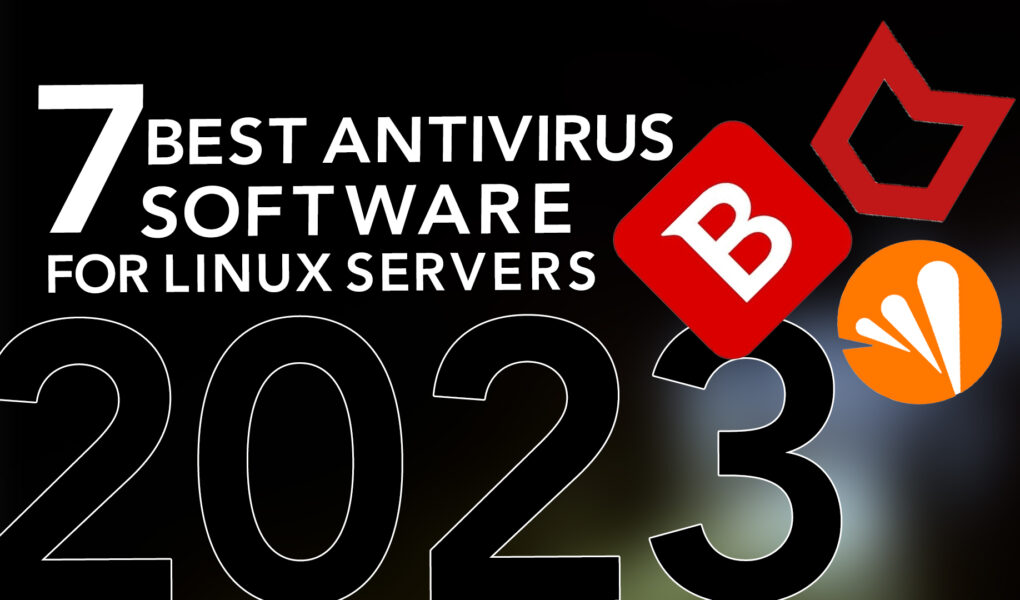Linux servers, while more secure than their Windows counterparts, are not invulnerable. Continuously evolving tactics employed by cybercriminals to exploit weaknesses in these systems emphasize the importance of implementing a resilient antivirus solution. Some common threats to Linux servers include rootkits, Trojans, ransomware, and DDoS attacks.
Pertaining to this, it’s crucial to ensure that your Linux server is protected by reliable antivirus software. To cater this, here we are discovering the seven best antivirus solutions available in 2023 that you can rely on.
1: TotalAV
TotalAV has gained recognition as one of the best antivirus software for Linux servers, offering comprehensive protection with real-time threat detection, advanced malware protection, and ransomware prevention. It’s compatible with multiple platforms, lightweight on system resources, user-friendly, and frequently updated to combat emerging threats. Furthermore, its competitive pricing renders it attainable for businesses of various sizes.
Pros
- Comprehensive protection features
- Cross-platform compatibility
- Lightweight and efficient
- User-friendly interface
- Regular updates
Cons
- Might be more expensive than other antivirus options
2: Bitdefender Antivirus Plus
Bitdefender Antivirus Plus stands out as a top choice for Linux servers due to its comprehensive protection, real-time threat detection, cloud integration, user-friendly interface, low system impact, and compatibility with various Linux distributions. This cybersecurity solution effectively safeguards Linux servers against viruses, malware, ransomware, and phishing attacks while ensuring optimal performance and seamless administration.
Pros
- Robust protection against various threats
- Real-time threat detection and prevention
- Cloud-based threat intelligence network
- User-friendly interface and centralized management console
- Minimal impact on server performance
- Compatibility with multiple Linux distributions
Cons
- Subscription costs may be higher than some competitors
3: McAfee
McAfee, a leading cybersecurity company, continues to be a top choice for Linux server antivirus protection in 2023 due to its comprehensive defense against various threats, real-time scanning, frequent updates, low system impact, and easy management. Its robust scanning engine efficiently detects and removes malware, viruses, and ransomware while ensuring minimal performance degradation. The centralized management console simplifies monitoring and management, providing a user-friendly experience.
Pros
- Comprehensive protection against various threats
- Real-time scanning and monitoring
- Regular updates for the latest threats
- Low system impact for optimal performance
- Easy management with a centralized console
Cons
- Occasionally, the software might flag legitimate files as threats
4: Kaspersky
Kaspersky is a top choice for antivirus software on Linux servers, offering comprehensive, multi-layered protection with minimal system impact. Its compatibility with various Linux distributions, centralized management through the Kaspersky Security Center, and excellent customer support make it an ideal choice. Nevertheless, despite its numerous benefits, certain users might perceive its pricing as slightly higher compared to its competitors.
Pros
- Comprehensive, multi-layered protection
- Lightweight performance
- Frequent updates
- Compatibility with various Linux distributions
- Centralized management
- Expert support
Cons
- Slightly higher pricing compared to competitors
5: Norton
Norton Antivirus has emerged as one of the best antivirus software options for Linux servers in 2023 due to its advanced malware detection, efficient performance, and multi-layered security features. With AI-powered algorithms, Norton stays ahead of the latest threats and offers comprehensive protection through real-time scanning, intrusion prevention, and firewall capabilities.
Additionally, its centralized management console simplifies administration, while its compatibility with popular Linux distributions such as Ubuntu, Red Hat, and CentOS makes it a versatile choice for diverse server environments.
Pros
- Robust malware detection
- Efficient performance with minimal impact on server resources
- Multi-layered security features
- Centralized management for simplified administration
- Compatibility with various Linux distributions
Cons
- Limited customization options compared to some open-source alternatives
6: ESET Advanced Protection
ESET Advanced Protection is a top-tier antivirus software specifically designed for Linux servers, offering comprehensive and efficient security. It boasts multi-layered protection against malware, ransomware, and other cyber threats while maintaining a light system footprint to ensure optimal server performance. Its user-friendly management console makes monitoring and controlling security a breeze, and the software is consistently updated to stay ahead of the latest threats.
One of the significant advantages of ESET Advanced Protection is its excellent customer support, ensuring any issues or queries are promptly addressed by their team of experts.
Pros
- Comprehensive multi-layered protection
- Light system footprint
- User-friendly management console
- Regular updates to combat evolving threats
- Excellent customer support
Cons
- It may not fully support all Linux distributions or configurations
7: Avast
Avast is widely recognized as one of the best antivirus software for Linux servers due to its comprehensive protection, high detection rates, and lightweight design. It offers real-time scanning, on-demand scanning, and scheduled scanning options to ensure optimal defense against various threats such as viruses, malware, and other malicious software. Furthermore, its regular updates and customizable features make it a perfect option for businesses, regardless of their size.
One of the standout features of Avast is its strong support and documentation, which includes detailed guides, FAQs, and a responsive customer support team.
Pros
- Comprehensive protection against various threats
- High detection rates for identifying and neutralizing threats
- Lightweight and efficient design for minimal system impact
- Frequent updates to stay current with the latest threats
- Customizable and scalable settings for individual server needs
- Strong support resources and documentation
Cons
- Subscription-based pricing may not suit all budgets
Conclusion
Safeguarding your Linux server against malware and various security threats is crucial to uphold the safety and integrity of your data and applications. The antivirus solutions discussed in this article are among the best available in 2023, each offering unique features and benefits. When selecting antivirus software for your Linux server, consider factors such as real-time scanning, automatic updates, and centralized management to ensure optimal security.



